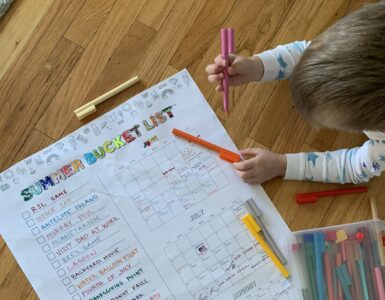It’s natural for moms to worry about their kids. Are they safe? Are they
eating enough? Are they walking and talking on time? Dr. Sarah Petersen
has advice on when not to worry.
Talking, smiling and taking those first steps are developmental milestones
every parent looks forward to. There are some general guidelines as to
when kids should reach certain milestones. The most important thing for
parents to keep in mind is that every child is different and some kids are
slower than others, but that isn’t necessarily a cause for concern.
3-4 months old
At this age, kids start to develop a smile, raise their head and chest when
lying on stomach, and can grasp and shake hand toys. Talk to your doctor
when:
· Baby does not respond to loud noises
· Does not notice hands
· Does not follow moving objects with eyes
· Does not grasp with hands
· Does not babble by 2-4 months
· Does not pay attention to
1 year old
At this age, kids can be shy or anxious with strangers, cry when mom or
dad leaves, repeat sounds or gestures, finger feed, respond to simple
requests, and start saying simple words. Kids may not walk by this age, and
some kids are less verbal than others, but talk to your doctor when:
· Baby does not crawl
· Drags one side of body while crawling
· Can’t stand when supported
· Does not use simple words such as mama or dada
· Does not use gestures, such as waving
· Experiences a loss of skills he or she once had
3 years old
Kids at this age can imitate adults and playmates, show affection, take
turns, make mechanical toys work, match simple objects, sort objects by
shape and color, and use 4-5 word sentences. Some kids are more shy
around friends, and some kids prefer to play alone, but talk to your doctor
when :
· Child falls frequently
· Persistent drooling
· Very unclear speech
· Can’t communicate in short phrases
· No interest in other kids
· Poor eye contact
· Experiences a loss of skills he or she once had
5 years old
At this age, kids can play well with friends, sing and dance, are aware of
gender, distinguish fantasy from reality, count, say name and address, use
a fork and spoon, and print some letters. Some kids are already learning to
read at this age, while others develop this skill a bit later. Talk to your
doctor when:
· Child is sad all the time
· Acts extremely aggressively
· Acts extremely fearful
· Refuses to respond to people in general
· Doesn’t express a wide range of emotions
· Has trouble eating, sleeping, or using the toilet
· Experiences a dramatic loss of skills he or she once had
For more information, contact the University of Utah South Jordan Clinic, at
801-213-4500.















Add comment